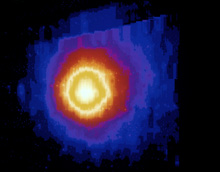A corpse is not a good customer: "A corpse is not a good customer!
by Adriano Autino
'Only if I kill a German will I succeed in persuading the other Germans that I am a man. Yet we have a law, that tells us not to kill'. As Mendel, the fugitive Russian Hebrew in the novel by Primo Levi, ' If not now, when?', says. Mendel, wandering behind the German lines somewhere between Bielorussia and Poland, survives Nazi persecution along with other Jews and resistance fighters, badly armed, decimated by hunger, disease and cold. He fights as best he can, against an enemy that understands only death. They have no alternatives, they have to respond to the Nazi's challenge accepting the rule of killing. In that bitter truth, we see all the anger, impotence, and repressed aspiration to a human state - unattainable in 1943-44, during the nazi-fascist Age of Barbarism.
We can observe that it is war, by itself, which produces this impotence, this regression of honest people to a bestial state, in which they give up and return to Nature's laws, whereby the stronger kills the weaker. This is a true commentary on all the wars which have stained our planet with blood from the dawn of history to our times. Nevertheless there is a big difference between a guerrilla fought with handmade weapons, under desperate conditions, in a state of technological and logistic inferiority, and military operations carried out by a modern technologically well equipped army. Paradoxically, though we would rather sympathize with the courage and the abnegation of those who fights in conditions of inferiority, we have to acknowledge that they don't generally have many alternatives to killing. While technological superiority, indeed, allows alternatives, in which awareness of strength is tempered by wisdom, and, above all, driven by political motives in which aspiration to a human state is a dominant ideological character, and with respect for the Law quoted by Mendel: do not kill. Obviously technological superiority, while it allows to choose behavioral models of higher ethical level, doesn't absolutely guarantee anything. And it is always the free will of the people to choose an higher profile or the simplest logic: I am technologically superior, therefore I can kill you better!
"
snip
For Nicolas Van Rijn (a space merchant, protagonist of the science-fiction cycle of the Paul Anderson's "Polesotechnic League") "a dead body is not at all a good client". And not even a boy to whom we have (i.e. "our" soldiers have) slaughtered his parents and raped his sister will never be a good client, neither our friend. We don't even need, after all, to resort to great philosophies, and "ideological roots": our bourgeois culture of commerce and progress it would be enough, in a context of increasing economy. The moral strength and the technological one always owe to be accompanied by friendship, by unconditional help, to all the human terrestrials which dare to smile and to put together their efforts to win the true challenge that we have to face: not the one of the religious ideologies, on the contrary the one - perhaps really religious, in the sense that asks to unite (in Latin religere) lot of people's efforts - to continue the development of the human civilization over the limits of this small planet.
These simple concepts should finally enter our head, and we will have to pay much more attention that who will sit on the desks of the future governments will have such concepts well present, in their every action and decisions.
---------
INTERESTING PIECE. - LRK -
Many folks would like to see us back on the Moon and developing its resources.
Saturday, September 18, 2004
Subscribe to:
Post Comments (Atom)





No comments:
Post a Comment
Note: Only a member of this blog may post a comment.